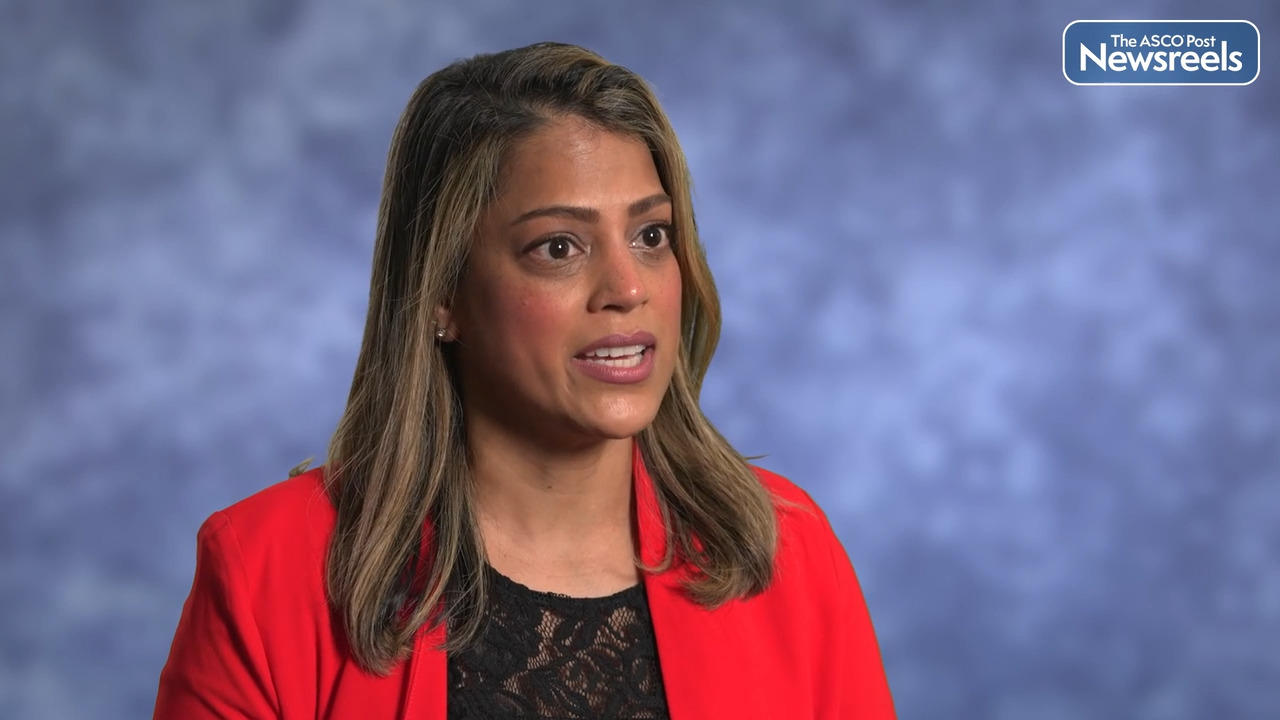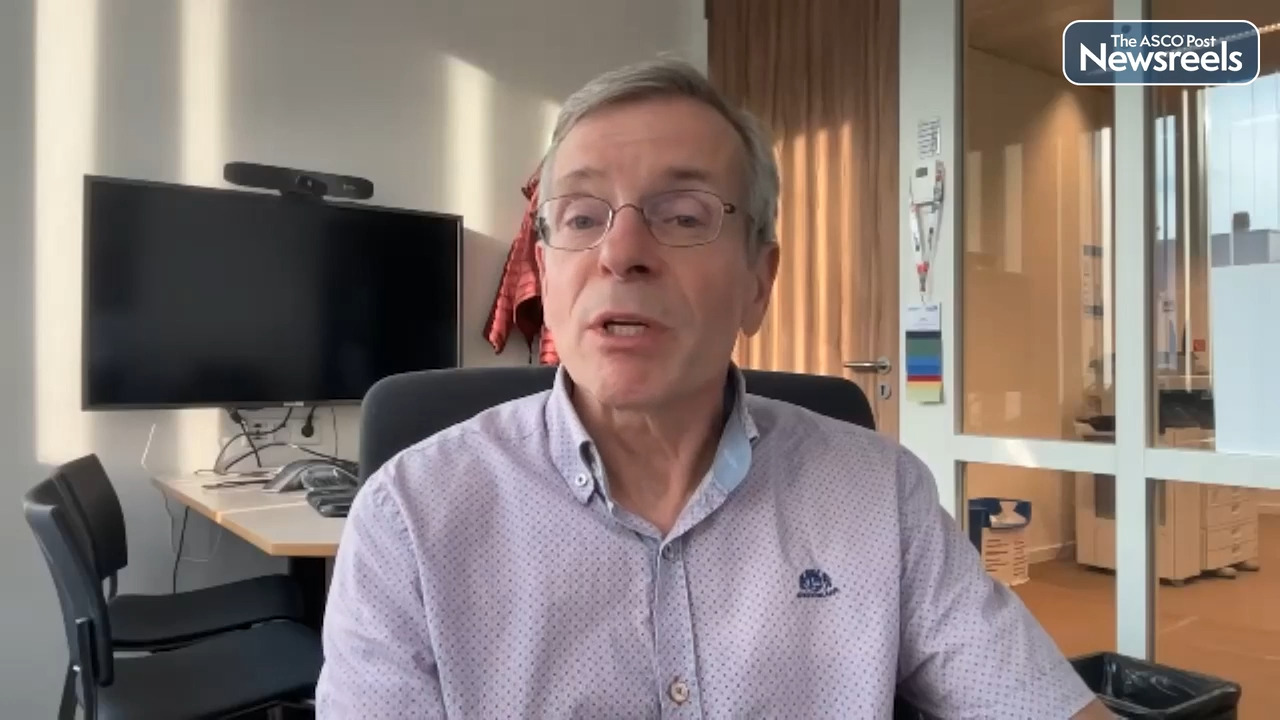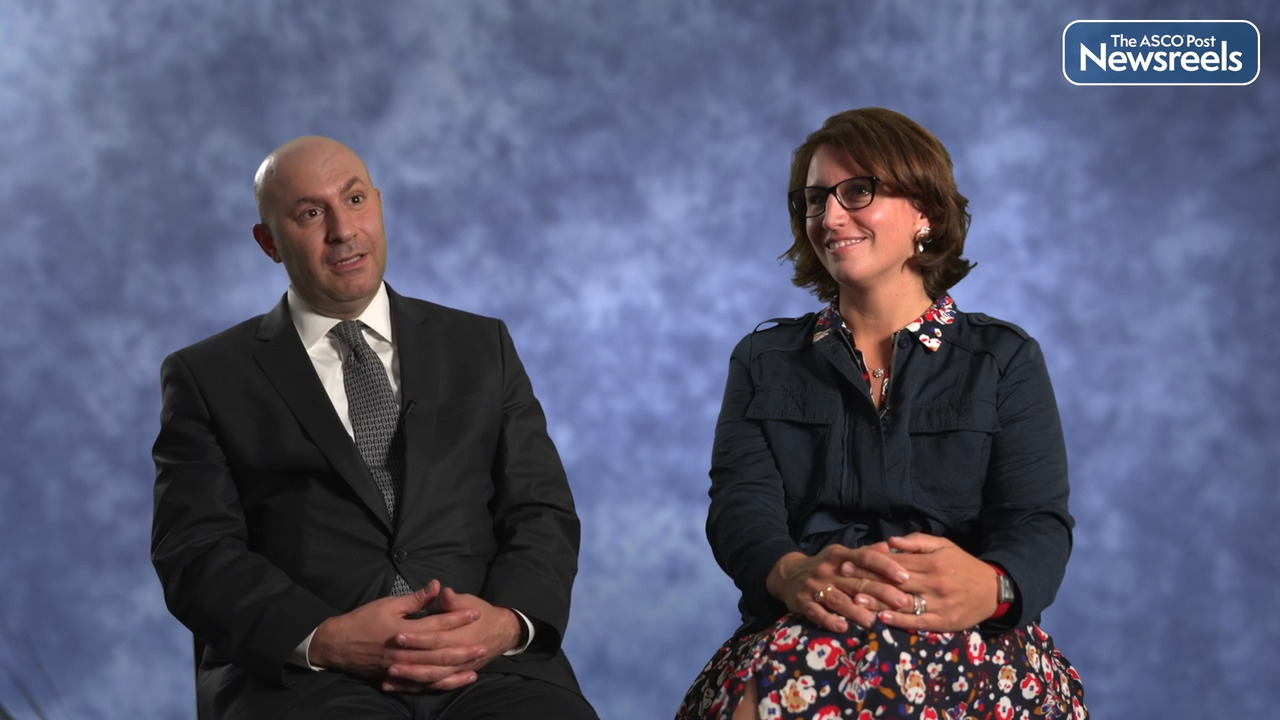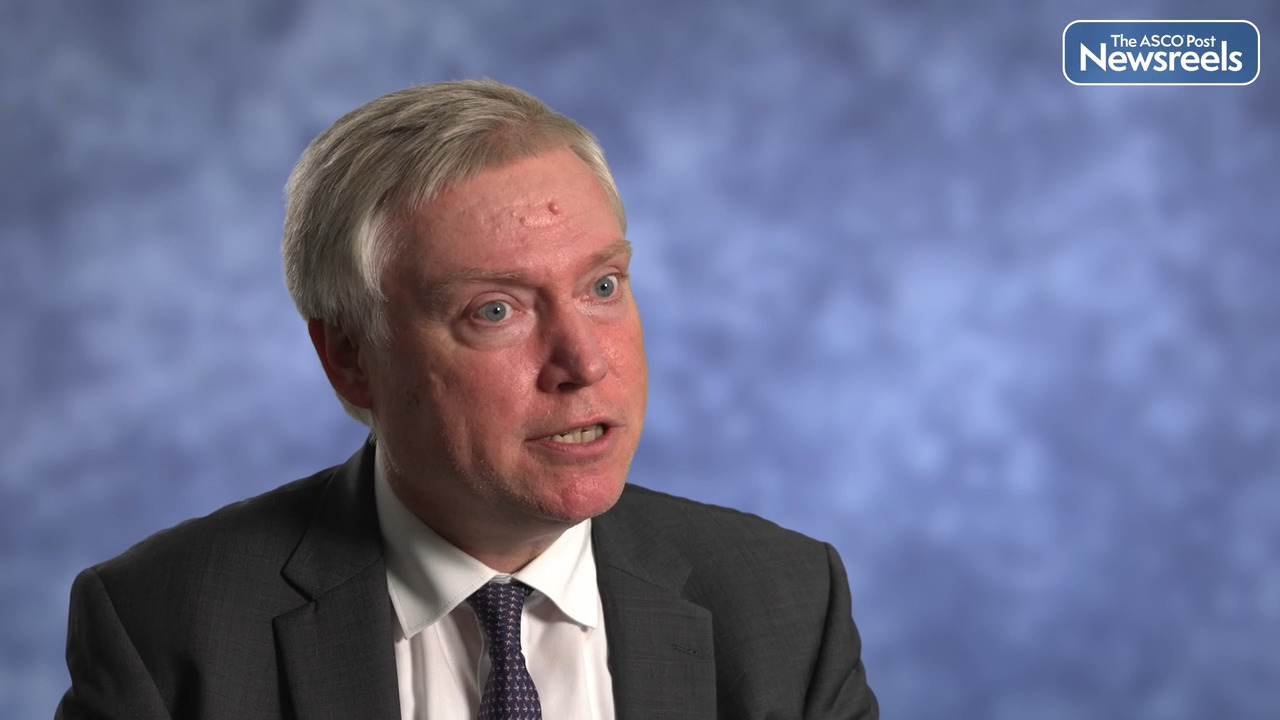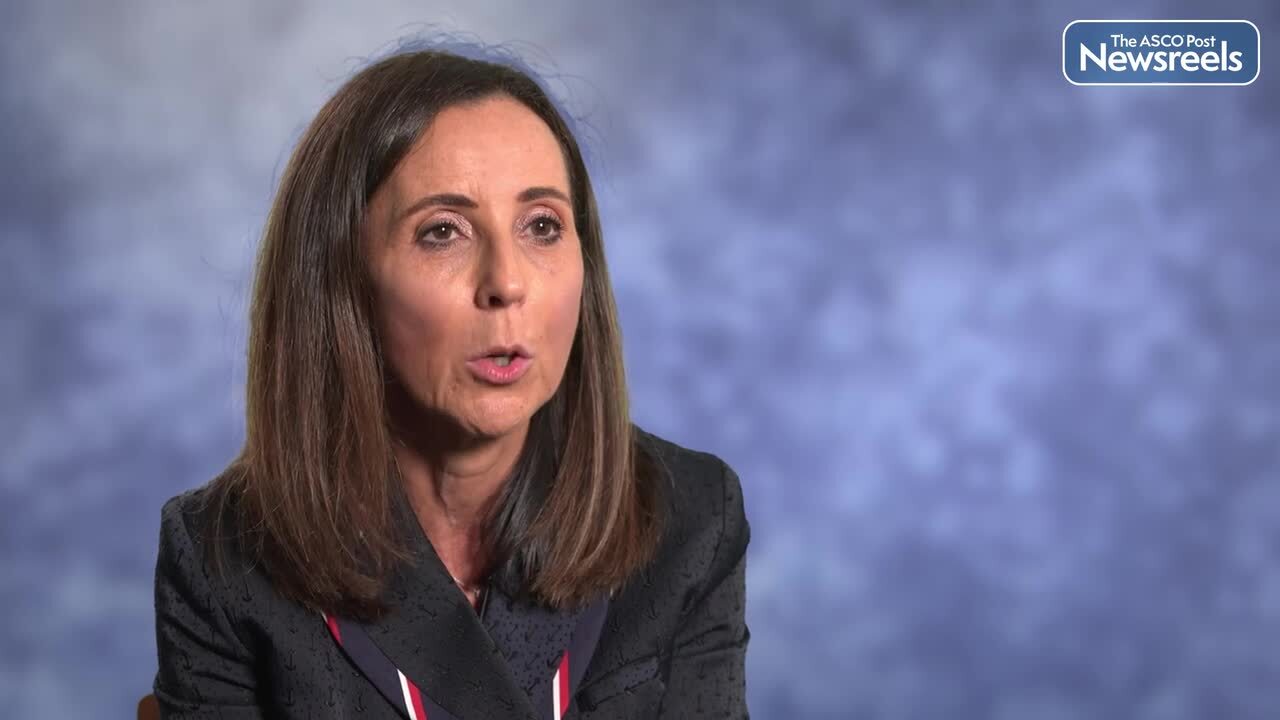Transcript
Disclaimer: This video transcript has not been proofread or edited and may contain errors.
The purpose of the Bellini study is to test the value of immune checkpoint innovation in early stage, triple-negative breast cancer without chemotherapy, in those tumors where there are TILs: Tumor infiltrating lymphocytes.
The last years we have seen meta-analysis and retrospective data: the triple-negative breast cancer patients where you have TILs in the tumor at a high level, that those women have a very good outcome, even without chemotherapy. Also, related to lymphocytes is the introduction of checkpoint blockade pembrolizumab for stage two and stage three, triple-negative breast cancer, in addition to the chemotherapy.
So those two developments are great for our patients, however, they come with new questions: who should we treat with immune checkpoint blockade? Who can be treated with immunotherapy without chemotherapy? How do we predict those good responders? And can we also give a bit less treatment, so either immunotherapy or chemotherapy or the shorter duration?
All those topics are being studied in the Bellini study. So the Bellini is a basket study, where we make small baskets of 15 triple-negative breast cancer patients, all that have TIL levels above 5%.
In the first basket, the patients were treated with nivolumab (anti-PD-1) for treatment durations of four weeks, followed by chemotherapy or their surgery. In the second basket, patients receive nivolumab, plus one shot of low-dose ipilimumab (also for four weeks), followed by chemotherapy or surgery. And before the chemotherapy, we made an MRI and also a biopsy or stake.
If you look at the adverse events, the treatment was, in general, tolerated pretty well, with the well known side effects for immune checkpoint blockage that we have seen before in cancer patients: with a relatively high number of patients suffering from thyroid problems, which has also been reported for other breast cancer trials.
Related to the efficacy, since this is a window trial, we have chosen a biological endpoint, meaning an enhancement of immune activation, meshed by CD8 levels (studied using immunochemistry), or increase in interferon gamma (using gene expression). And we were aiming for doubling of those values. So can we, within four weeks of treatment, enhance the immune activation? And that seems to be the case.
So in the first basket, 15 patients were treated; in the second basket, 16 patients. And more than half of the patients in both baskets experienced such an immune activation, by a doubling of CD8 T cells or a doubling of interferon gamma. And thereby both cohorts met the primary endpoint of the clinical trial.
The secondary endpoint was the radiological response: of the 30 cases, seven patients had a partial response on MRI after only four weeks of treatment, which was more than we expected upfront. Of those seven cases, three patients were in the nivolumab cohort and four patients in the nivolumab-ipilimumab cohort.
Interestingly, we've seen that all patients with such a partial response had TIL levels above 40%, suggesting that if you have higher levels of TIL, the more likely you are to respond to the treatment. Secondly, we also looked at ctDNA levels: so can we see a drop in ctDNA levels, circulating tumor DNA in the blood of those patients? And you see that around 25% of the patients indeed have clearance of ctDNA with only four weeks of treatment.
So in conclusion, this exploratory trial suggest that there is a subgroup of patients that can be treated with immunotherapy alone, without chemotherapy, as measures using immune activation. Also, we've seen that around 20% of the patients showed a partial response after four weeks of treatment and 25% of the patient showed ctDNA clearance.
Currently we're working on single-cell, RNA sequencing analysis to dissect the difference between nivolumab and nivolumab plus ipilimumab; and also validation cohorts are ongoing for patients with TIL levels above 50%, where we treat for six weeks and then all patients goes to surgery, to really assess the pathological response after immune checkpoint blockade in early stage, triple-negative breast cancer.
